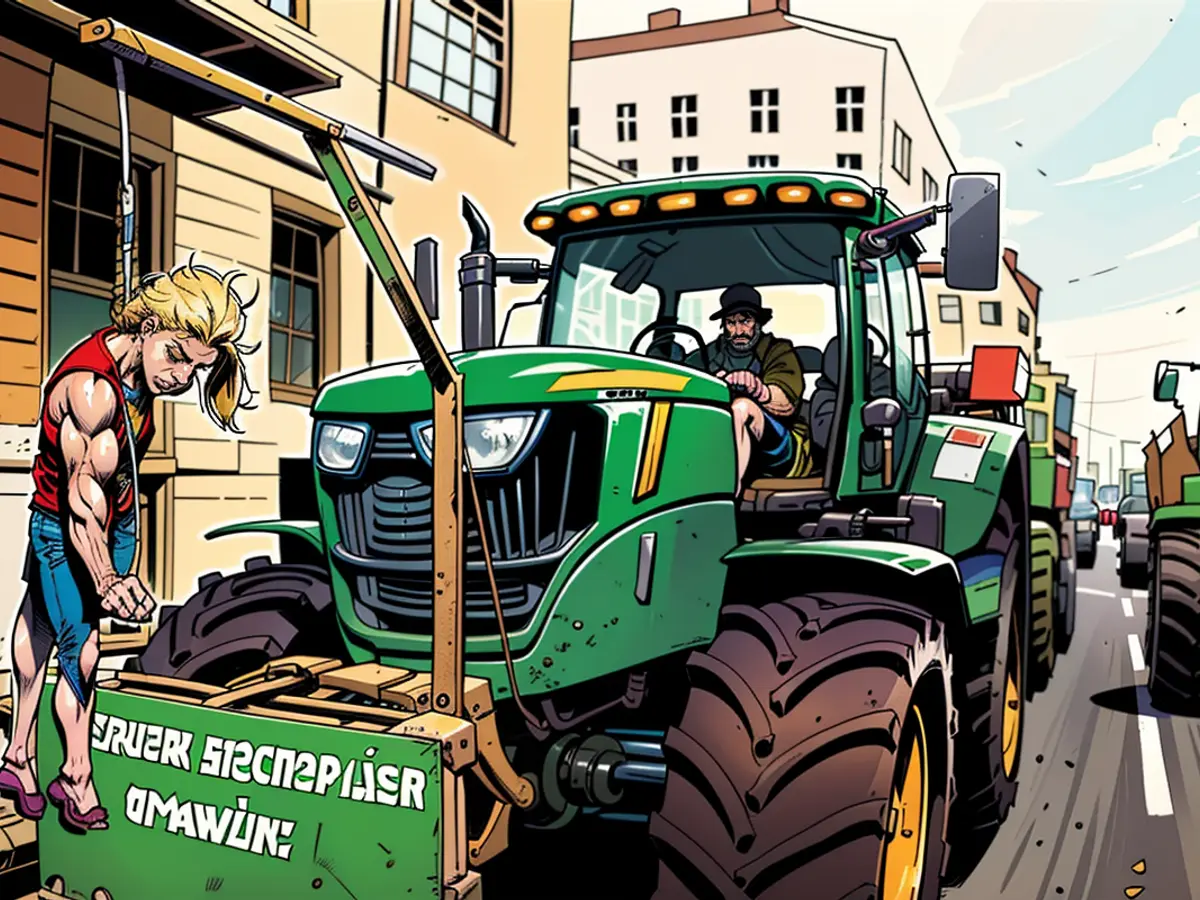Farming routes see enhanced access with traffic light improvements
Agricultural protesters take to the streets at the start of the year due to the revocation of diesel tax exemptions. Under public pressure, the coalition government assures relief measures. After negotiations, parliamentary parties have agreed on lowered taxes, less red tape, and enhanced leverage in the supply chain, all the way through to trading.
The traffic light coalition in the Bundestag acknowledges the agricultural reforms they proposed following farmer demonstrations at the beginning of the year. Part of the agreement includes tax smoothing for agricultural and forestry incomes, along with a bundle of measures to decrease red tape, as fraction leaders of SPD, Greens, and FDP stated in a joint statement. This aims to steady income fluctuations. Farmers can better counterbalance income from favorable and unfavorable years. Furthermore, livestock farming on green land under the Common Agricultural Policy of the EU will receive additional support.
The position of farmers is to be bolstered against trading through a legislative amendment. The execution falls now to the federal and state governments. SPD fraction leader Rolf Mützenich announced that the agricultural package would be the topic during the next plenary week's first reading. The inspiration behind the reform package was the farmer protests, in response to cuts in tax relief in the agricultural sector at the beginning of the year. Several of the cut plans were retracted by the federal government. The diesel tax exemption abolishment in agriculture was also prolonged by three years.
Concurrently, the traffic light government presents a package of measures for reduced red tape in agriculture. Over 200 proposals from the federal states have been evaluated. The resulting execution is a shared responsibility of the federal and state governments. Numerous easements are already encompassed in the GAP Conditionalities Act, which the coalition plans to pass in the Bundestag within the coming week.
The coalition announced that it would decide on farmer relief measures by summer. The goal is the future stability of agriculture. FDP fraction leader Christian Dürr remarked, "At the start of the year, farmers and farmer wives voiced their displeasure. We, as a coalition, agreed to bring a substantial relief package for farmers in motion."
Farmers' Union raises concerns about "broken promises"
Before the announcement, the Farmers' Union called for guaranteed relief for the industry from the federal government, considering the large tractor protests at the beginning of the year. "The anger has not died down," said Farmers' President Joachim Rukwied at the German Farmers' Day in Cottbus. "We need a shift in agricultural policy, and if that doesn't happen, dissatisfaction will escalate."
Rukwied also referred to the promised easements, stating that businesses should be able to offset fluctuating results in their taxes. "If the tax smoothing isn't implemented, then farmers and farmer wives will say: That's a broken promise. Then politics will lose the already scarce trust it has. The coalition partners must be aware of that." The political climate for the industry is a topic at the German Farmers' Day on this Wednesday and Thursday in Cottbus.
Read also:
The German Farmers' Association expresses concerns over perceived "broken promises" regarding agricultural relief, following the trauma of large tractor protests at the beginning of the year. In response to these concerns, Rolf Mützenich, SPD fraction leader, assures that the agricultural package, inspired by farmer protests, will be a priority during the next plenary week's first reading, aimed at bolstering farmers' positions in agriculture and counteracting income fluctuations.








